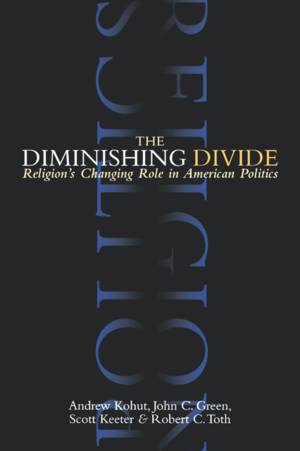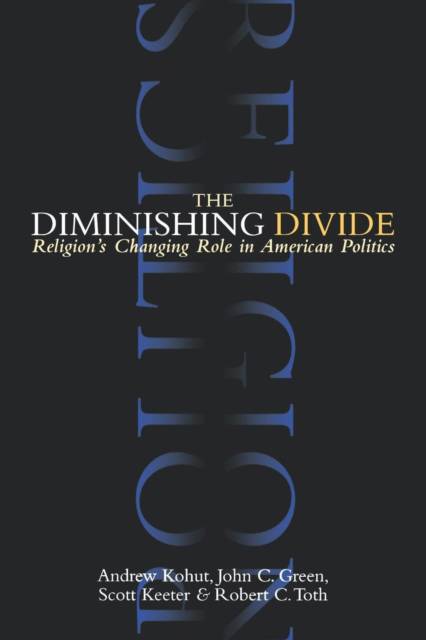
- Retrait gratuit dans votre magasin Club
- 7.000.000 titres dans notre catalogue
- Payer en toute sécurité
- Toujours un magasin près de chez vous
- Retrait gratuit dans votre magasin Club
- 7.000.0000 titres dans notre catalogue
- Payer en toute sécurité
- Toujours un magasin près de chez vous
The Diminishing Divide
Religion's Changing Role in American Politics
Andrew Kohut, John J Green, Scott Keeter
Livre broché | Anglais
38,45 €
+ 76 points
Description
The First Amendment of the U.S. Constitution forbids the creation of an official state church, and we hear the phrase ""separation of church and state"" so frequently that it may surprise us to note that no such barrier exists between religion and politics. Religion is, and always has been, woven into the fabric of American political life. In the last two decades, however, the role of religion in politics has become more direct--almost a blunt, self-conscious force in the political process. The national consequences of this ""diminishing divide"" between religion and politics have brought new groups into politics, altered party coalitions, and influenced campaigns and election results. Churches and other religious institutions have become more actively engaged in the political process, and religious people have increased the level and broadened the range of their political participation. While the public is more accepting of the role of religion in shaping today's political landscape, the issue of how much political power certain religious groups enjoy continues to provoke concern.Drawing on extensive survey data from the Pew Research Center, the National Election Studies, and other sources, The Diminishing Divide illuminates the historical relationship between religion and politics in the United States and explores the ways in which religion will continue to alter the political landscape in the century before us. A historical overview of religion in U.S. politics sets the tone as the book examines the patchwork quilt of American religion and the changing role of religious institutions in American political life since the 1960s. The book explores the complex relations between religion and political attitudes, as well as that of religion and political behavior--particularly with respect to party affiliation and voting habits. Finally, The Diminishing Divide offers a look at the future. As candidates and elected officials increasingly air their personal faith in public places with apparent political intent, and as parishioners are marshaled into political action by clergy and political groups, the authors lay out the background against which religion's power in American political life will be played in the new century.
Spécifications
Parties prenantes
- Auteur(s) :
- Editeur:
Contenu
- Nombre de pages :
- 196
- Langue:
- Anglais
Caractéristiques
- EAN:
- 9780815750178
- Date de parution :
- 01-04-00
- Format:
- Livre broché
- Format numérique:
- Trade paperback (VS)
- Dimensions :
- 153 mm x 230 mm
- Poids :
- 267 g

Les avis
Nous publions uniquement les avis qui respectent les conditions requises. Consultez nos conditions pour les avis.






